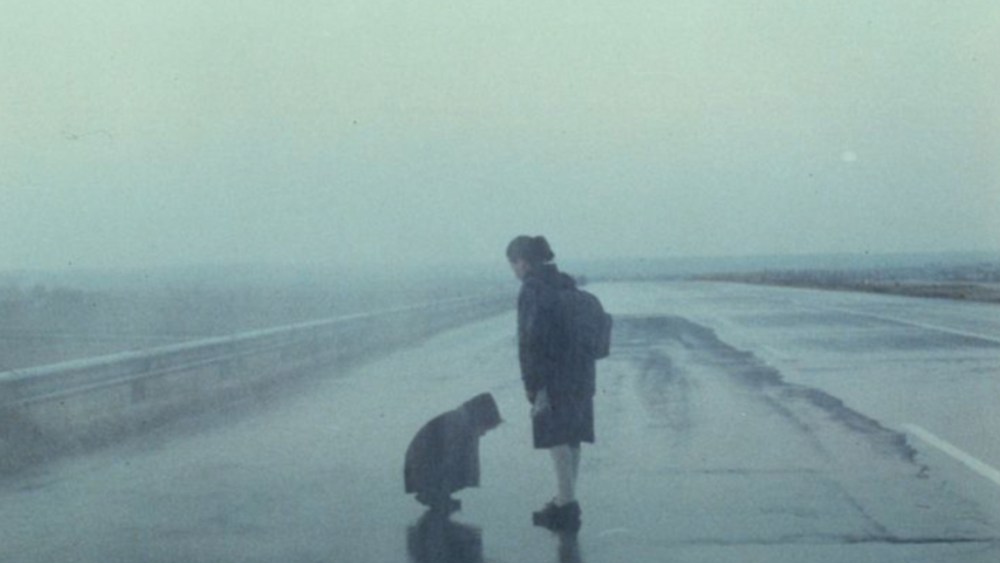What do bottled water, candy, and Greek movies have in common?
That’s the question posed by a provocative ad that highlighted the dire state of Greek film funding ahead of screenings at this year’s Thessaloniki Film Festival.
The 60-second animated spot was produced as part of the wider Visibility Zero movement, highlighting how the country ranks at the bottom of Europe in terms of public support for the audiovisual industry.
As the ad points out, Greece’s selective financing system (particularly related to domestic productions and international co-productions) has a budget of just 6.5 million euros ($7.5 million) in 2025, making it the lowest of the continent’s film industries as a percentage of GDP. At 63 cents per person, this amount is roughly equivalent to the cost of one bottle of water and one throat lozenge for every Greek citizen.
Backed by a growing international following, Greek filmmakers are calling on the government to shore up the struggling film industry before it’s too late.
“The Greek state has to take a decision to further support selected programs, because at the moment they cannot compete with the (available) funds,” said filmmaker Silas Tzomerkas, who directed the 2019 Berlinale premiere of “Miracle on the Sargasso Sea” and whose last film, “The City and the City,” was screened at the Thessaloniki Film Festival in 2022.
“If we want Greek cinema to thrive and be ambitious, we need to support it in more substantial ways.”
The Zero Visibility movement was launched in June with an open letter to the Greek government demanding action on the crisis in domestic production.
Sending what it described as a “distress signal” to Greece’s Ministry of Culture and the Creative Greece organization created last year to oversee the country’s film industry, the letter, which attracted more than 2,000 signatories, called for increased funding for the country’s audiovisual sector, a concerted effort to clear the backlog of late payments from Greece’s cash rebate scheme, and an overhaul of the Creative Greece board that includes veteran industry experts.
The movement, which took its name from a 1970 drama by Greek director Nikos Foskolos, quickly attracted support from around 200 international film luminaries, including Juliette Binoche, Willem Dafoe, Vicky Krieps, Charlie Kaufman, Ruben Östlund, Radu Jude and Paweł Pawlikowski, who signed a statement “in solidarity with the demands of[Greek]filmmakers.” We are calling for greater support from the government.
“Attacks on film and the arts, whether through acts or omissions, are unacceptable,” the statement read. “We continue to firmly support our Greek colleagues and hope that the artists of Europe’s most vibrant and dynamic film industry will soon be able to work within a framework that is suitable and valuable for their work.”
This week in Thessaloniki, industry experts are distributing flyers and Visibility Zero campaign buttons to raise awareness of their fight, ensuring that the movement is never visible to festival-goers.
“(Thessaloniki) is our biggest national film event, and it’s important that people understand that we’re making (films) that people will use their (little) means to come to the festival to see,” said veteran film producer Vicki Miha (“Dogtooth,” “The Quiet Life”). Considering the current situation, she added, “How can we move towards a better future for Greek cinema?”
In response to questions from Variety, a representative from Creative Greece (known by its Greek acronym EKKOMED) claimed that after a volatile transition period following its founding in 2017, the organization is now “entering a stable and mature operational phase” and is focused on a five-year action plan to support “the long-term development of Greek cinema.”
Regarding the balance of outstanding rebate claims, the official said that the Greek government has spent 203,400 million yen since 2019 to support the audiovisual sector through both cash rebates and selective financing schemes. It pointed out that of the total amount of 88.5 million euros ($271 million), 88.5 million euros ($102 million), or 37.8% of the total amount, was paid after September 2024, when EKKOMED was officially established.
Additionally, last year, in response to industry demands, EKKOMED increased its budget for selective funding programs, with this year’s allocation of 6.5 million euros (approximately 750 million yen), “the highest ever budget for a selective program and an increase of almost 55% compared to the previous year,” the official said.
But Greek filmmakers say the increase is still short of the 15 million euros ($17.4 million) promised to the industry by Greek authorities in November 2023, and has done little to close the gap with neighboring countries. According to Miha, the number of local films showing in Thessaloniki this week – including 32 feature films and 30 short films, including 29 premieres – is more a byproduct of the industry’s “resilience” than a sign of sufficient government support.
Despite their frustrations, Greek filmmakers acknowledge that the industry has come a long way since cash rebates were introduced in 2019. He added that the efforts of the Zero Visibility Movement have sparked productive dialogue between industry stakeholders and governments, which he hopes will bear fruit in the coming months.
“The Greek film industry has changed a lot in the past eight years,” Miha said. “Each institution’s efforts are progressing. There is still much work to do at different levels, but everyone’s goal is to work together to make Greek cinema stronger.”
Thessaloniki Film Festival runs from October 30th to November 9th.

